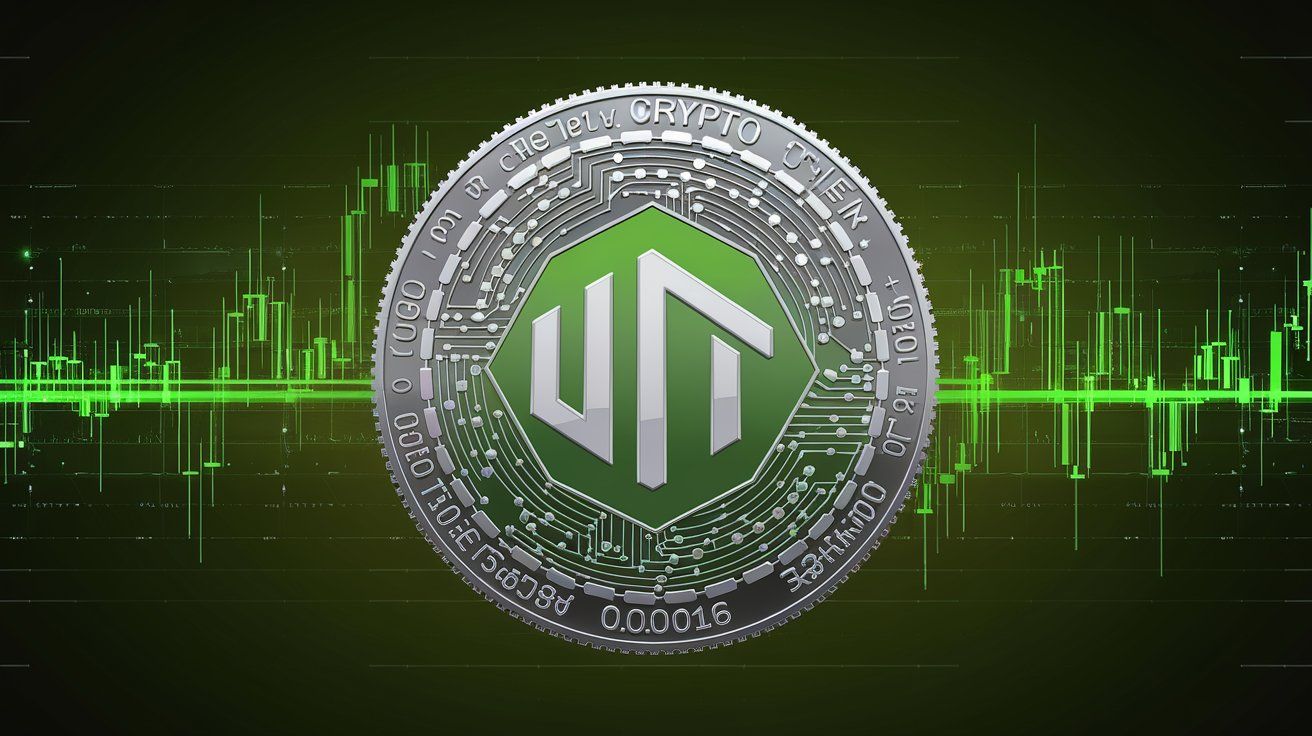Most cryptocurrencies can be divided into two groups: coins and tokens. The sole purpose of a coin is to transfer money. Examples of currencies are Ripple (XRP) and Bitcoin (BTC). On the other hand, tokens belong to a completely different class of cryptocurrencies; one popular type is utility tokens.
Utility tokens are exclusive to their respective blockchains and allow users to perform specific tasks on a particular blockchain network or decentralized application. These tokens are not mineable cryptocurrencies. Instead, they are usually mined in advance, and the team behind the project will later decide how to distribute the tokens.
What is a Utility Token?
A utility token is a type of digital asset that gives its holder access to a product or service within a specific blockchain platform or ecosystem. Think of it like a ticket or a voucher—it doesn’t represent ownership or investment in a company but rather allows you to use certain features or benefits on a network.
For example, a utility token could give access to extra features in a software application, discounts, or voting rights on a platform. Utility tokens are commonly used in blockchain projects to fuel activities within the network and help fund development.
One of the most popular examples of utility tokens are gaming tokens that can be used to access play-to-earn crypto games.
Security tokens vs utility tokens
Another common type of crypto token is a security token. The main difference between utility tokens and security tokens in crypto lies in their purpose and how they’re regulated:
Utility tokens are like access passes that give holders the right to use a product or service within a specific platform. They don’t represent ownership or investment; instead, they grant access to features, discounts, or voting rights in a project. Since they’re used within an ecosystem and not meant as investments, utility tokens usually aren’t regulated as strictly as securities.
A gaming platform might issue a utility token that lets players buy in-game items or unlock special features.
On the other hand, Security Tokens represent ownership or investment in a company or asset, much like traditional stocks or bonds. Security tokens are subject to financial regulations and must comply with securities laws because they’re sold with the expectation of profit. Holders might receive dividends, ownership rights, or profits if the value of the token increases.
How Do Utility Tokens Work?
Utility tokens work as digital assets designed to provide access to a specific product, service, or feature within a blockchain-based platform or ecosystem.
When users hold a utility token, they can “unlock” certain benefits, such as exclusive access, discounts, or voting rights. Unlike traditional currencies, utility tokens are often used only within the issuing platform, acting as a kind of digital pass to participate in that project’s ecosystem.
For example, a utility token might allow users to purchase in-game items on a gaming platform, pay for transaction fees, or vote on future project developments.
Because utility tokens are primarily used for access and not for investment, they’re generally not subject to the same strict regulations as securities, making them a popular choice for blockchain projects seeking to raise funds and create an interactive community.
Utility Token Examples
There are numerous utility tokens available that all have different purposes. Here are a few well-known examples of utility tokens.
Basic Attention Token (BAT)
As mentioned above, the Brave browser is compatible with the BAT token. The Basic Attention Token allows the requirement of ongoing tracking of user activity to be replaced with a new, less invasive advertising revenue model.
This model allows Brave users to receive payment in the form of BAT when they choose to see ads. Users can then tip content providers on their websites or Twitter using their earned BAT.
Binance Coin (BNB)
BNB is a type of exchange token. Users who hold BNB on Binance’s platform receive a 25% discount on trading fees. The fees are deducted from the trader’s BNB balance and are not charged on the traded cryptocurrency.
Zilliqa (ZIL)
Zilliqa is a platform for the development of decentralized applications. The goal for developers is to increase the affordability and security of apps. In addition, ZIL tokens can be used for digital advertising and games.
Aurora (AOA)
Aurora is a decentralized cryptocurrency banking platform that runs on smart contracts. The AOA token is a stablecoin backed by debt and cryptocurrency reserves and also has a DEX.
Challenges of Using Utility Tokens
Using utility tokens comes with technological and market issues, as well as regulatory difficulties.
Utility tokens, like most cryptocurrencies, can be used as an asset for financial speculation. However, depending on the function of the token, this can lead to problems. For example, it can be difficult for users to estimate how many tokens they need if they require a certain number of tokens to perform a certain action on a network, and the dollar value of the token changes significantly.
The Future of Utility Tokens
Utility tokens are any cryptocurrency tokens that you can issue with a particular decentralized application or crypto ecosystem to perform certain actions.
Most utility tokens are based on an established blockchain, and the applications they are used for are developed using smart contracts built on the blockchain, while the token itself is built on top of the blockchain.
The development of open banking is still in its infancy globally. Blockchain-based services and security tokens are expected to impact the future significantly. However, there currently needs to be more agreement on the regulation of cryptographic tokens.
Utility tokens have the potential to change the way that we interact with digital technology. However, regulatory grey areas and lack of understanding have prevented these tokens from gaining mass adoption.
FAQs
What are the best utility tokens?
Binance Coin (BNB) – Overall Best Utility Token To Buy In 2023. Binance Coin is the utility token for the largest and most liquid centralized crypto exchange in the world – Binance. It is also the utility token for the rapidly-expanding Binance Smart Chain.
Is ETH a utility token or no?
Ether (ETH) is the native cryptocurrency of the blockchain. Then there are ERC-20 tokens, which are utility tokens of the Ethereum blockchain. These types of tokens are designed to be used to pay for different functions, goods, and services.
Why invest in utility tokens?
With the growth of blockchain networks around the world, utility token is widely used to raise capital for startups through ICOs, since they can be sold in exchange for other digital assets.
Which crypto is utility token?
Binance Coin (BNB) is a utility token that operates as a payment method for the fees associated with trading on the Binance Exchange. It is the third-largest cryptocurrency by market capitalization. 11 Those who use utility token as a means of payment for the exchange can trade at a discount.
Are utility tokens a good investment?
Is utility token a good investment for token holders? Commonly issued during an ICO, utility tokens provide token holders with privileged services and aren’t considered to be investments as they are speculative and act more like promotional tools for the issuing company.
What’s the difference between a security coins and utility tokens?
Expectations. In a security token, the value of the company is directly tied to the company’s valuation. More valuable the company, the more valuable the token. In a utility token, there is no relation between the current state of the company’s valuation and the value of the utility tokens.
Can you sell a utility token?
These utility tokens can be traded for Bitcoin or ETH, which can be exchanged for fiat currency, making them equally as valuable as any form of fiat money.
What is the difference between utility token and cryptocurrency?
The main difference between a utility token and cryptocurrency lies in their purpose and use within the blockchain ecosystem. Cryptocurrencies are designed to be a means of exchange whereas tokens provide access to applications and products.









